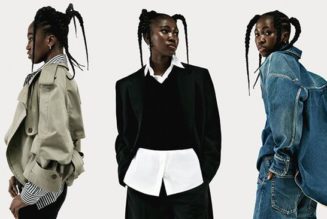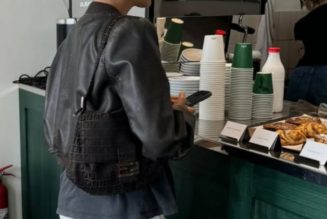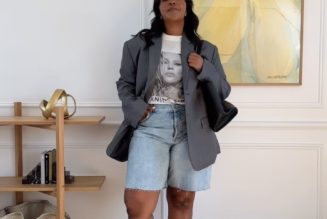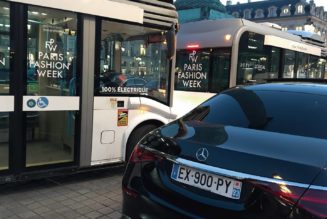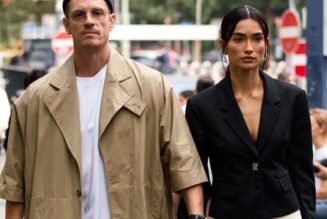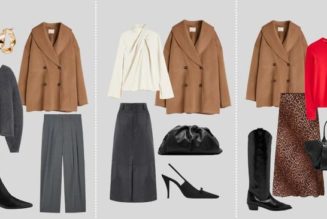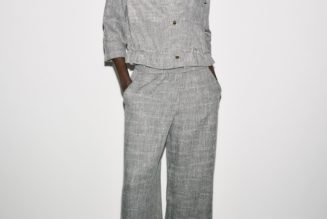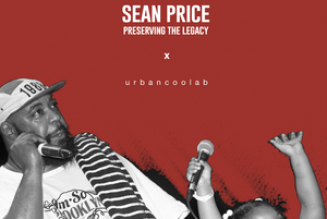By Shannan McCance
Where others saw scraps or waste, Elizabeth Blankenship (MBA ’22) saw a business opportunity.
Working in the luxury fashion industry, the University of Virginia Darden School of Business alumna noticed how much textile was left over or unused at fashion houses. Instead of seeing those scraps as trash, Blankenship transformed them into a successful business that uses high-end designers to produce special-order, one-of-a-kind clothing from leftover textiles.
 Her “zero-waste clothing” business, By Eilly, was born. And now, after many years of learning the lessons of being an entrepreneur, Blankenship is ready to give back.
Her “zero-waste clothing” business, By Eilly, was born. And now, after many years of learning the lessons of being an entrepreneur, Blankenship is ready to give back.
This month, CAV Angels, a nonprofit organization of UVA alumni, faculty, students and other University-affiliated investors that invests in early-stage companies, announced Blankenship as the group’s first entrepreneur in residence.
UVA Today caught up with Blankenship to learn more about her experiences and her new role.
Q. What does “zero-waste clothing” mean?
A. Zero-waste clothing means that every element — from materials, production and end use — has been considered and accounted for. This means that as we produced the clothing, each element (fabric, paper patterns, sewing threads, etc.) was either upcycled or recycled.
We took the leftover and unused textiles from luxury fashion houses across Europe and New York. I took these small amounts of tailoring and design yardage and used them to produce new collections on demand, many of which were “one of one.” Once we had the fabric, we produced each order only after the customer had bought it, holding no finished goods inventory.
“[Ar]ound 2019-ish a coworker and I calculated the cost of the small rolls of fabric piling up in our basement, and I discovered how big a problem design and tailoring fabric wastage really is.”
Elizabeth Blankenship (MBA ’2022)
As the garments went through the production process, every scrap was saved. The used paper from the patterns was recycled through the New York City Sanitation recycling program, but the fabric was a bit trickier. We found a great partner through FabScrap, a female-founded nonprofit that recycles and upcycles commercial textile waste. Larger scraps were put aside in our atelier and were used for our own accessory collections (hair scrunchies, small handbags, scarves).
Q. How did you decide to make a business out of scraps and waste?
A. I realized that there was a problem with textile waste early on in my design career, but the word “deadstock” was always floating around, most famously used by brands like Reformation and Everlane, so I thought the problem had been solved. It wasn’t until around 2019-ish that a coworker and I calculated the cost of the small rolls of fabric piling up in our basement, and I discovered how big a problem design and tailoring fabric wastage really is.
The first thing I did was use these fabrics to make holiday gifts for all of our vendors and manufacturing partners, which was a hit. From there, I began formulating ideas around how to integrate these materials back into a clothing production line, and the idea for By Eilly was born.
Q. What have you learned about being a successful entrepreneur?
A. If you asked me this last year, I might’ve said something along the lines of preparation and planning were keys to success. Now I identify most with Mike Tyson’s infamous quote, “Everyone has a plan until they get punched in the mouth.”
While the punches of entrepreneurship are sometimes more subtle, you really do have to be ready to survive and thrive through any circumstance. Having the strength and presence of mind to make tough calls is what sets successful founders apart, especially in the current economic climate. This is something you can build over time of course, but I wish I had realized it sooner.
Q. What does an entrepreneur in residence do?
A. In all honestly, I Googled this exact question when Rich Diemer [of CAV Angels] first brought this idea to me. An entrepreneur in residence can mean many different things depending on the fund, and I think we created a role that encompasses all the best parts. My role at CAV will focus on three main tenets: founder support, diligence reporting and operational support.
Something that I see as key in my role is being the best and biggest advocate for the founders, both those in our pipeline as well as portfolio company founders. I know how hard their jobs are, and it’s my responsibility to find them the support they need.
“While I may not ever become an accountant, the lessons I learned at UVA have prepared me to be able to take on any new subject matter with ease.”
Elizabeth Blankenship (MBA ’22)
Q. How did UVA help prepare you for your new role?
A. UVA has been a linchpin in my life and can’t imagine where I would be without the support of UVA professors, alumni, my fellow students and the entirety of the Batten Institute staff. I came to [the] Darden [School of Business] with the goal of starting my own venture, and UVA supported me 100% through this entire journey.

Elizabeth Blankenship and fellow entrepreneurs won awards at the UVA Entrepreneurship Cup competition in 2022.
I was nervous coming into Darden because of my career as a designer. I had no previous exposure to the worlds of finance, accounting, data science or even marketing. However, I was welcomed with open arms. My learning team (one of the best parts of my Darden experience) helped walk me through cases each night, and the lessons went beyond just those of the day’s cases.
One moment I’ll never forget was the day we were learning LIFO and FIFO [accounting and inventory] principles in Accounting II. My [learning teammate], Rohan Birhani, could tell that I just wasn’t getting it. He scrapped his case review and instead grabbed a whiteboard. Rohan switched around the entire case and based it on the leather skins I might buy to make handbags. He walked through an entire scenario of how my brand and I would produce, sell and then account for the materials of those handbags. I got it immediately.
While I may not ever become an accountant, the lessons I learned at UVA have prepared me to be able to take on any new subject matter with ease. I’ve directly translated this ability to my work with CAV Angels, where I could be reviewing decks for ventures within biotech, fintech, marketplaces, medical devices and consumer goods all within the same afternoon.
Q. What’s your best advice for students who have great ideas, but aren’t sure what to do next?
A. Focus on your next step forward. Don’t let the mountain in front of you scare you – just take it one step at a time.
And, more robustly, I recommend all students to read Saras Sarasvathy’s book, Effectuation. Saras was my professor at Darden and she would be one of the first people I’d recommend any UVA student to reach out to. Focus on what you’re good at, what you care about, who else cares about that, and go from there.
This story originally appeared in UVA Today.

